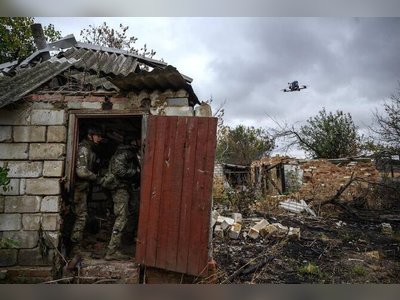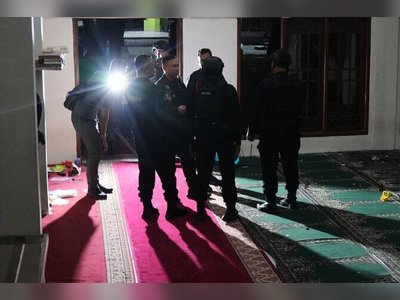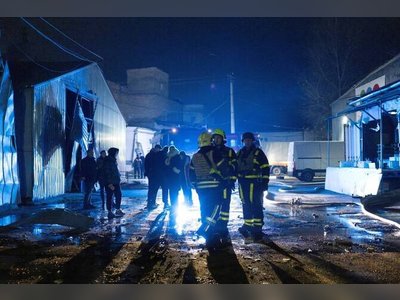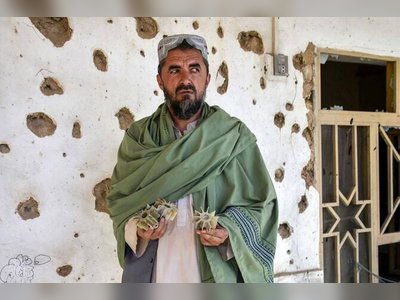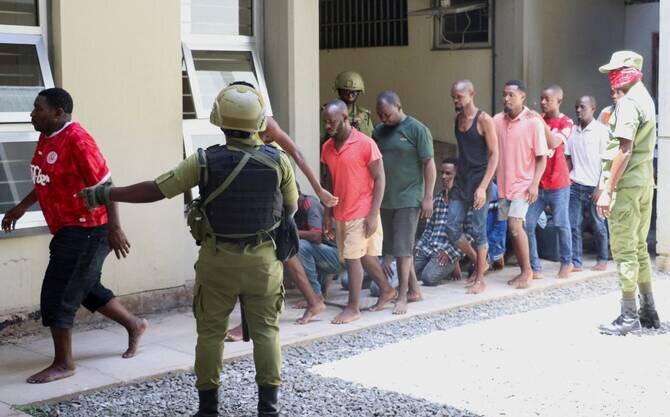
Tanzania Charges Hundreds with Treason Following Disputed Polls
The Tanzanian authorities have charged hundreds of individuals with treason in connection with demonstrations that took place following disputed elections last month. Additionally, arrest warrants have been issued for several opposition figures.
In a significant escalation of political tensions in Tanzania, the government has initiated treason charges against hundreds of people who participated in protests related to the recent contested polls.
These demonstrations occurred in response to the disputed elections held on October 29th.
The country has experienced widespread violence, with an unknown number of fatalities reported.The authorities have already prosecuted numerous individuals with similar treason charges in different regions across the East African nation.
Furthermore, they have issued arrest warrants for prominent opposition figures, including Brenda Rupia, communications director for Chadema, and John Mnyika, the party's secretary-general.
Chadema is Tanzania’s leading opposition party.Chadema's leader, Tundu Lissu, has been detained for several months and also faces treason accusations.
He had advocated for electoral reforms prior to the polls.
The exact number of deaths remains a subject of contention as both Chadema and the Catholic Church in Tanzania claim that hundreds of people may have been killed during the disturbances.
They allege that security forces are attempting to conceal the extent of these fatalities by secretly disposing of the bodies.President Samia Suluhu Hassan secured over 97% of the vote according to official results, despite facing competition from 16 lesser-known candidates after major opposition figures were barred from standing.
Critics argue that there was a repressive atmosphere prior to the elections, marked by enforced disappearances, arbitrary arrests, and extrajudicial killings, claims that the Tanzanian government denies.The African Union (AU) observer mission has criticized the election process.
They concluded in their findings that the polls did not adhere to AU principles and international electoral standards.
The observers reported instances of ballot stuffing at various polling stations and cases where multiple ballots were issued to voters.
The overall atmosphere was deemed incompatible with peaceful conduct and acceptance of electoral outcomes.Tanzania has been under single-party rule since the introduction of multi-party politics in 1992, except for a brief period.
However, critics maintain that previous administrations tolerated opposition while maintaining firm control over power.
In contrast, President Hassan is accused of adopting an increasingly authoritarian approach that contradicts the democratization movements seen across the region.The governing Chama cha Mapinduzi party, which maintains ties with China’s Communist Party, has governed Tanzania since it gained independence from Britain in 1961.
President Hassan extended this consecutive rule by winning the recent elections.
These demonstrations occurred in response to the disputed elections held on October 29th.
The country has experienced widespread violence, with an unknown number of fatalities reported.The authorities have already prosecuted numerous individuals with similar treason charges in different regions across the East African nation.
Furthermore, they have issued arrest warrants for prominent opposition figures, including Brenda Rupia, communications director for Chadema, and John Mnyika, the party's secretary-general.
Chadema is Tanzania’s leading opposition party.Chadema's leader, Tundu Lissu, has been detained for several months and also faces treason accusations.
He had advocated for electoral reforms prior to the polls.
The exact number of deaths remains a subject of contention as both Chadema and the Catholic Church in Tanzania claim that hundreds of people may have been killed during the disturbances.
They allege that security forces are attempting to conceal the extent of these fatalities by secretly disposing of the bodies.President Samia Suluhu Hassan secured over 97% of the vote according to official results, despite facing competition from 16 lesser-known candidates after major opposition figures were barred from standing.
Critics argue that there was a repressive atmosphere prior to the elections, marked by enforced disappearances, arbitrary arrests, and extrajudicial killings, claims that the Tanzanian government denies.The African Union (AU) observer mission has criticized the election process.
They concluded in their findings that the polls did not adhere to AU principles and international electoral standards.
The observers reported instances of ballot stuffing at various polling stations and cases where multiple ballots were issued to voters.
The overall atmosphere was deemed incompatible with peaceful conduct and acceptance of electoral outcomes.Tanzania has been under single-party rule since the introduction of multi-party politics in 1992, except for a brief period.
However, critics maintain that previous administrations tolerated opposition while maintaining firm control over power.
In contrast, President Hassan is accused of adopting an increasingly authoritarian approach that contradicts the democratization movements seen across the region.The governing Chama cha Mapinduzi party, which maintains ties with China’s Communist Party, has governed Tanzania since it gained independence from Britain in 1961.
President Hassan extended this consecutive rule by winning the recent elections.

